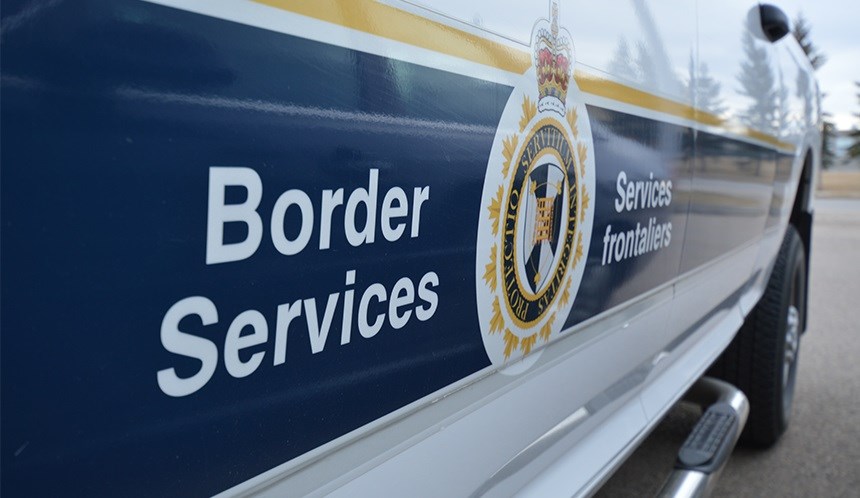
The Canada Border Services Agency (CBSA) has been at the forefront of Canada’s pandemic response. Throughout 2021, the Agency adapted border measures to help stop the spread of COVID-19 and to ensure the health and safety of travellers and of all Canadians.
The ongoing expedited clearance of vaccine shipments into Canada and the facilitation of shipments of the COVID-19 oral antiviral treatment are key examples of how the CBSA is helping to protect the health of Canadians. Along with ensuring the flow of goods across our border remains steady, the Agency continued to manage the increase of courier shipments, as more Canadians shopped and did business online.
Even with the constant operational changes and challenges brought on by COVID-19, the Agency continued to prevent firearms, opioids and other contraband from entering our communities, as well as accurately assessed duties and taxes on imports.
- Border services officers kept over 92,479 prohibited weapons off our streets in 2021. Additionally, 1,122 firearms were seized last year, more than double the number from 2020.
- In 2021, the CBSA also seized 1,315 kg of cocaine. The total CBSA value of all drugs seized during that time was approximately $431.4 million.
- The total amount of duties and taxes (customs duties, surtaxes and GST) assessed nationally last year was approximately $33.3 billion.
These are a few of the many examples from the CBSA’s enforcement and operational highlights for 2021.
The pandemic was also the catalyst to expedite several technological advancements at the CBSA. The Agency has moved forward on modernizing our border by using safe and secure technologies and data to facilitate and expedite touchless travel, commercial and trade experiences and to help reduce the transmission of disease. Working closely with the Office of the Privacy Commissioner, the CBSA ensures that its technologies protect the privacy and information of travellers and that participation is based on informed consent.
On January 26, the CBSA will join other border agencies around the world in marking International Customs Day. This year’s theme, which focuses on digital transformation and embracing a data culture, is well-aligned with the CBSA’s modernization efforts which include using new technologies and data to make legitimate and essential cross-border travel and trade more secure and efficient. These efforts include:
- Working in close collaboration with the Public Health Agency of Canada (PHAC), the CBSA created ArriveCAN, the official Government of Canada mobile application and website for travellers to submit mandatory information before entry into Canada. ArriveCAN was designed to focus on reliable, real-time data, using secure advanced technology. This data has been critical in supporting the Government of Canada’s response to the pandemic and keeping our borders safe.
- The CBSA continued to expand the use of ArriveCAN to improve the border experience. The new Advance CBSA Declaration feature allows travellers arriving at certain airports to electronically submit their customs and immigration declaration in advance of their arrival in Canada (which was formally a paper-based customs and declaration form). This feature is currently available at the Vancouver International Airport and Toronto Pearson International Airport and only through the ArriveCAN website. It will soon be expanded to other airports across Canada and be available on the app.
- To address the significant increase of e-commerce and low-value imports shipments as a result of COVID-19, the CBSA reprioritized resources to facilitate this surge and introduced solutions such as digitizing manual processes. Further, the Agency expanded its Electronic Longroom initiative, an email and digital stamping service allowing commercial clients to move away from paper-based transactions and expediting the movement of cargo at the border.
- The Agency continued moving forward on the Postal Modernization Initiative, which will improve the CBSA’s ability to interdict high-risk goods by using advance data in the three international mail centres in Vancouver, Montreal and Toronto. Improvements are being made to IT systems and infrastructure, with the goal of processing mail more efficiently, automating duties and tax assessments, and preventing harmful goods from entering Canada.
- The CBSA made further enhancements to the Canadian Export Reporting System (CERS). The free, web-based, self-service portal allows exporting clients to electronically submit export declarations and summary reports and helps improve data accuracy and reporting expediency. The implementation of CERS has established a technological platform to support the future needs and priorities of the export program.
- The CBSA is working towards the full implementation of the CBSA Assessment and Revenue Management (CARM) project. The first two stages of the multi-year initiative were implemented in 2021, and work continues on the next phase to modernize the systems and process involved in the collection of duties and taxes of goods imported into Canada. CARM aims to simplify the importation process by providing modern border services for Canada’s trade community and represents a significant technological advancement for the CBSA in safely leveraging the cloud.
